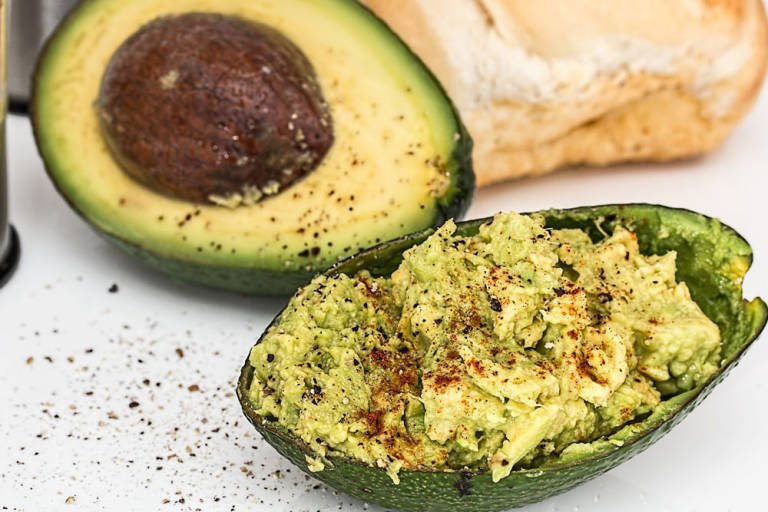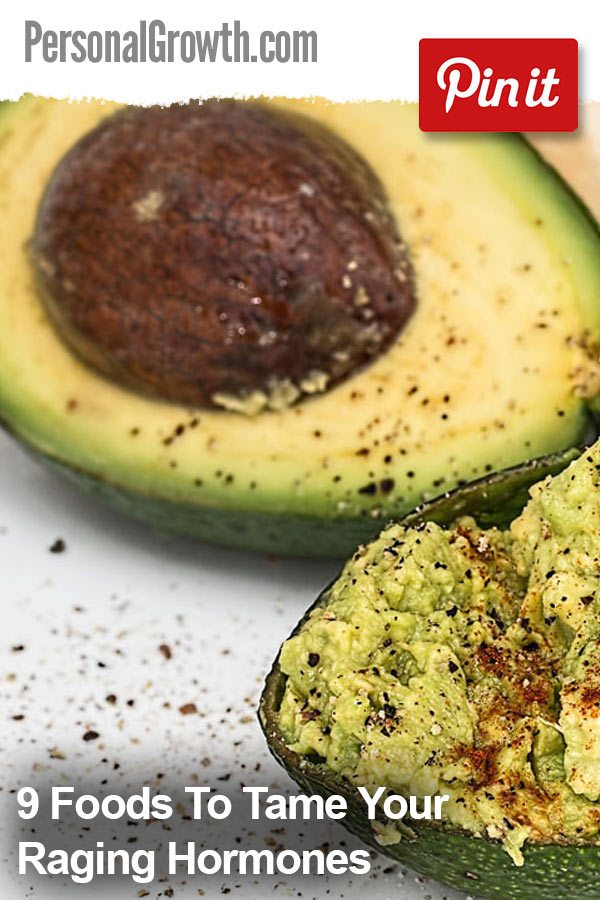

Women deal with hormonal fluctuations often. This could be each month during menstruation and the days leading up to it, it could occur during pregnancy or in the first few weeks postpartum, or it might be blamed on menopause and the hormonal changes that brings about.
Whatever is causing your hormones to rage, you probably would do anything to make the issues that this causes go away. Hormonal shifts can lead to things like mood changes, bloating, tenderness and hot flashes.
By eating certain foods, you can help regulate your hormones and feel better on a day to day basis. A healthy diet is important, but these foods should never replace any medications or treatments your doctor has prescribed for you.
1. Spirulina
This food is actually a type of blue algae found in many lakes and ponds. It’s a great choice for regulating your hormones due to its large amounts of calcium, potassium and magnesium. These nutrients play a role in hormone regulation, and it can fight issues such as tenderness, mood swings and inflammation that occur when your hormones get out of whack.
Many people add spirulina to smoothies or juice blends, which can mask its flavor and help you reap the rewards it has to offer. Look for spirulina at health food stores, and add it to your daily meal plan.
2. Maca
This is tuber, which is popular in South America. In addition to its great flavor, it can help balance your hormones and deal with issues that range from hot flashes to low libido.
Like spirulina, most people eat maca in the form of powder, which is mixed into smoothies or other beverages. You can also take maca capsules, which give you the benefits in a way that is easy to reconcile with your diet and meal plans. A health food store is the best place to find maca powder or capsules.
3. Kale
Kale is a superfood, and it can be found at most supermarkets where the other leafy green vegetables are displayed and sold. Kale is packed with nutrients, including vitamins A, C, K and B6, manganese and calcium.
Together, these nutrients offer your body lots of fiber and plenty of antioxidants. Eating kale is a great way to fight mood swings, bloating and cramping. There are lots of ways to eat kale. You can enjoy it raw in salads, add it to soup, or blend it into a green smoothie.
The nutrients are more readily available the closer to its natural state it is in. Cooked kale is great, but raw is better, in other words.
4. Coconut Oil
According to the experts, healthy fats are vital for proper hormone regulation. When you have proper fat levels in your body, you can more efficiently produce and regulate hormone production and levels.
Healthy fats are those that contain omega-3 fatty acids rather than those that are saturated or trans fats. Coconut oil is a great choice and can be used in many ways. Use it to make homemade salad dressings or to add flavor to steamed veggies. The popularity of coconut oil makes it super easy to find at any grocery store where the other cooking oils are sold.
5. Avocados
Much like coconut oil, avocados are great for your hormones because they contain healthy fats. There is a broad range of nutrients in avocados that works together to keep your hormones in check, which can aid in many issues, including bloating, mood swings and general discomfort.
These nutrients include fiber, vitamin E, potassium and folic acid, which are also important for other purposes. Avocado makes a great addition to salads, but you can also use it on sandwiches or as a topping for grilled chicken tacos. Keep your portions moderate since avocados do contain more calories than other fruits and vegetables.
6. Bright Veggies
The reason why brightly colored vegetables are a good choice for hormones is because they are packed with antioxidants. These are plant compounds that your body relies on for a large number of reasons, including hormone regulation.
When your hormones are in sync and where they should be, you can battle hormonal problems like bloating, tenderness, mood swings and libido loss. Good choices include bell peppers, cantaloupe, carrots, red cabbage and tomatoes. A big salad is one of your best ways to ensure that you get enough of these vegetables in your daily meal plan. The more variety, the better, according to the health experts.
7. Eggs
There are many reasons why eggs are good for your health. They contain protein as well as vitamins A and D, iron, B vitamins, calcium, potassium and choline. These nutrients play many roles in your body, but you need them to keep hormone regulation under control.
Eating a plate of scrambled eggs is an easy way to help battle hormonal issues like bloating and depression. You can also use eggs to make quiche or egg sandwiches, which will also give you the benefits that eggs have to offer.
8. Clean Protein
Clean protein refers to protein sources that are not over-processed and that are as close to their natural state as possible. You also need to choose grass-fed and hormone-free cuts of chicken, steak, pork and fish.
These items are good for hormone regulation and can help you work through mood problems, bloating and other things that go along with raging hormones. If you don’t eat meat, try beans, nuts, seeds, quinoa and lentils. Again, the more variety you include in your diet, the more you can enhance the benefits of eating clean sources of protein.
9. Spices
Many spices have healing and medicinal properties, making them a great choice for helping to regulate your hormones so that you can feel better, whether you have PMS, are going through menopause or are pregnant or postpartum.
There are lots of ways to incorporate spices into your cooking, including using them to season meats and veggies. You can also use them in marinades and homemade salad dressings.
Many of these spices are also found in ethnic recipes, so experimentation is a fun way to find out which ones you like and which ones work for you. Experts suggest cinnamon, cayenne, cum
It’s no secret that what you eat plays a definite role in your health and how you feel. Because regulated hormones can help you feel great and control issues that you most likely don’t want to deal with, it’s important to make sure you are choosing foods that can help you reach your goals and keep you from suffering hormonal situations.
If you make dietary changes and you don’t experience an alleviation of symptoms, or they get worse, it’s time to make an appointment to see your physician to rule out other problems that could be at play. When used in conjunction with medical treatments, these foods can help you regulate hormones and live the life you deserve.

